Leadership at Mercedes-Benz Group AG drives digital transformation across various domains. The Supervisory Board prioritizes innovation to align with emerging mobility trends.
Leaders like Renata Jungo Brüngger and Mathias Geisen ensure technological advancement while maintaining the brand’s luxury heritage. Mercedes-Benz’s digital transformation has been significantly influenced by the strategic initiatives of its leadership team. Here’s an overview of key executives and their contributions:
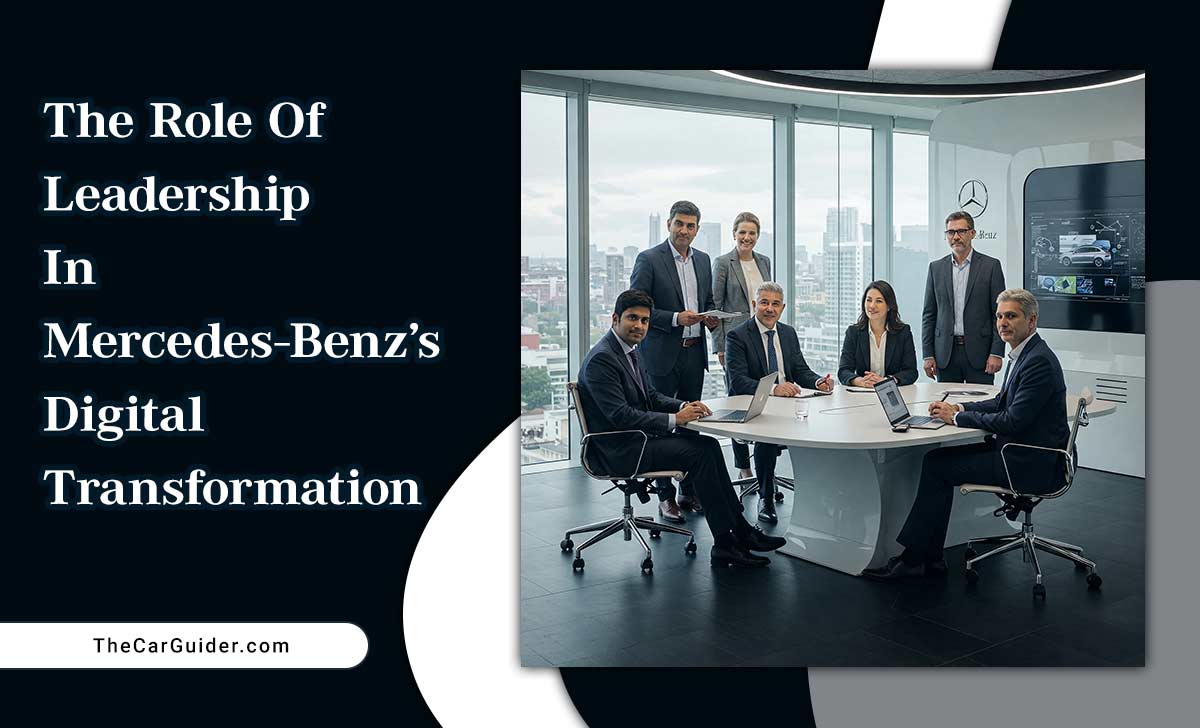
1. Ola Källenius – Chairman Of the Board Of Management
Ola Källenius has been instrumental in steering Mercedes-Benz towards a digital future. Under his leadership, the company has emphasized the importance of diversity and inclusion as catalysts for innovation.
Källenius believes that a diverse team is essential for successful transformation, stating that both the product and the team should emerge stronger from this journey. He has actively engaged with various communities within the company to foster an inclusive culture, which he views as foundational to their corporate strategy.
2. Sabine Scheunert – Vice President Of Digital & IT Marketing/Sales Mercedes-Benz Cars
Sabine Scheunert leads the digital transformation efforts, focusing on leveraging technology to enhance customer experiences. She advocates for a people-first approach, emphasizing that technology should create customer value.
Scheunert’s leadership has been pivotal in integrating digital services and products that align with customer needs, ensuring that technological advancements translate into tangible benefits.
3. Melody Lee – Chief Marketing Officer
Appointed as the Chief Marketing Officer, Melody Lee is redefining luxury for a new generation of drivers. She has spearheaded initiatives to resonate with younger, more diverse audiences by integrating sustainability and technological innovations into the brand’s identity.
Lee’s strategies include partnerships that promote inclusivity and the development of electric vehicles, such as the all-electric G-Wagon, aligning with the company’s digital and sustainable transformation goals.
4. Leadership In Organizational Innovation
Mercedes-Benz.io, a subsidiary focused on digital solutions, has adopted Holacracy. A self-management framework that replaces traditional hierarchies with agile principles.
This approach decentralizes decision-making, granting employees greater autonomy and responsiveness to change. Such organizational innovation reflects the leadership’s commitment to fostering an environment conducive to digital transformation.
Mercedes-Benz Accelerates Digital And Autonomous Initiatives
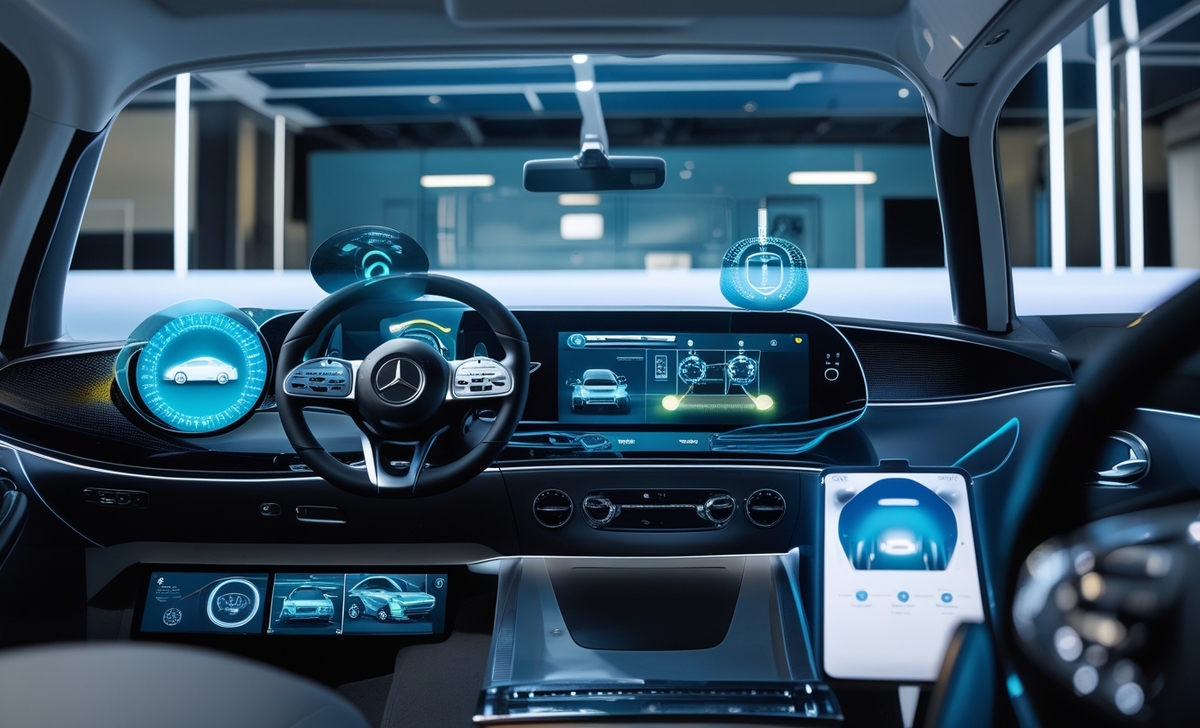
Mercedes-Benz has proactively accelerated its digital and autonomous driving initiatives, reflecting a strategic commitment to innovation and technological advancement. Here’s an overview of their recent efforts:
1. Enhanced Autonomous Driving Capabilities
- Upgraded DRIVE PILOT System: Mercedes-Benz has advanced its DRIVE PILOT system, a Level 3 autonomous driving feature, to operate at speeds up to 95 km/h on German motorways, pending regulatory approval. This enhancement allows drivers to engage in other activities while the system manages driving tasks under specific conditions.
- Collaboration with Momenta in China: Mercedes-Benz is partnering with autonomous driving startup Momenta to strengthen its position in the Chinese market. This collaboration aims to integrate Momenta’s advanced driver-assistance system (ADAS) software into four Mercedes models scheduled for release in China between 2025 and 2027.
2. Digital Transformation Initiatives
- MO360 Data Platform: In collaboration with Microsoft, Mercedes-Benz has developed the MO360 Data Platform to enhance efficiency, resilience, and sustainability in car production. This unified data platform enables real-time analysis and visualization of production data, optimizing processes and supply chain management.
- Partnership with NVIDIA: Mercedes-Benz is working with NVIDIA to digitalize the entire vehicle product lifecycle. This partnership involves creating AI-enabled digital twins of manufacturing facilities using NVIDIA Omniverse, facilitating the optimization of production processes and the development of software-defined vehicles equipped with advanced autonomous driving capabilities.
3. Workforce Digital Upskilling
- D.SHIFT Retraining Program: Mercedes-Benz launched the D.SHIFT program to support its digital transformation, retraining production employees for digital roles. Participants acquire skills in data analysis, artificial intelligence, and software development, aligning with the company’s shift towards electrification and digitalization.
Through these initiatives, Mercedes-Benz demonstrates a comprehensive approach to integrating digital technologies and autonomous capabilities, reinforcing its commitment to innovation and leadership in the automotive industry.
Key Themes In Mercedes-Benz’s Digital Transformation
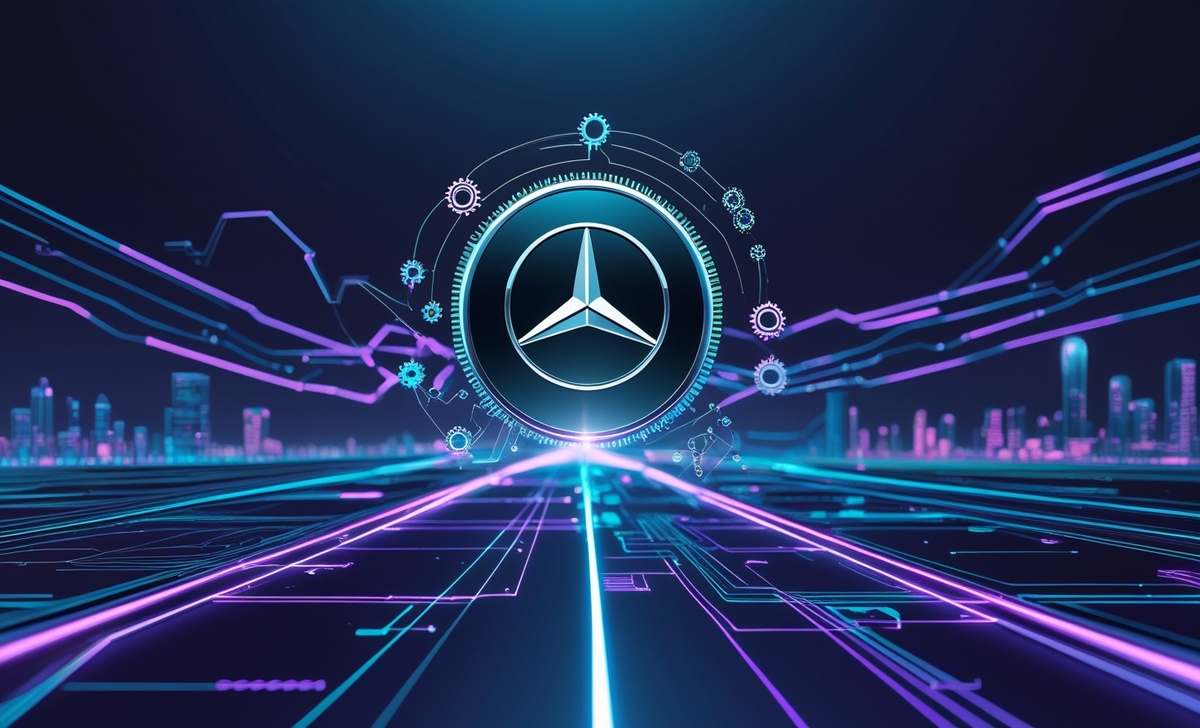
The Intersection Of Luxury And Technology
Mercedes-Benz seamlessly integrates luxury with technology. The company balances high-end design with cutting-edge digitalisation. Leadership ensures that digital transformation enhances the Mercedes-Benz brand without compromising its legacy.
MBUX: AI-Driven In-Car Experiences
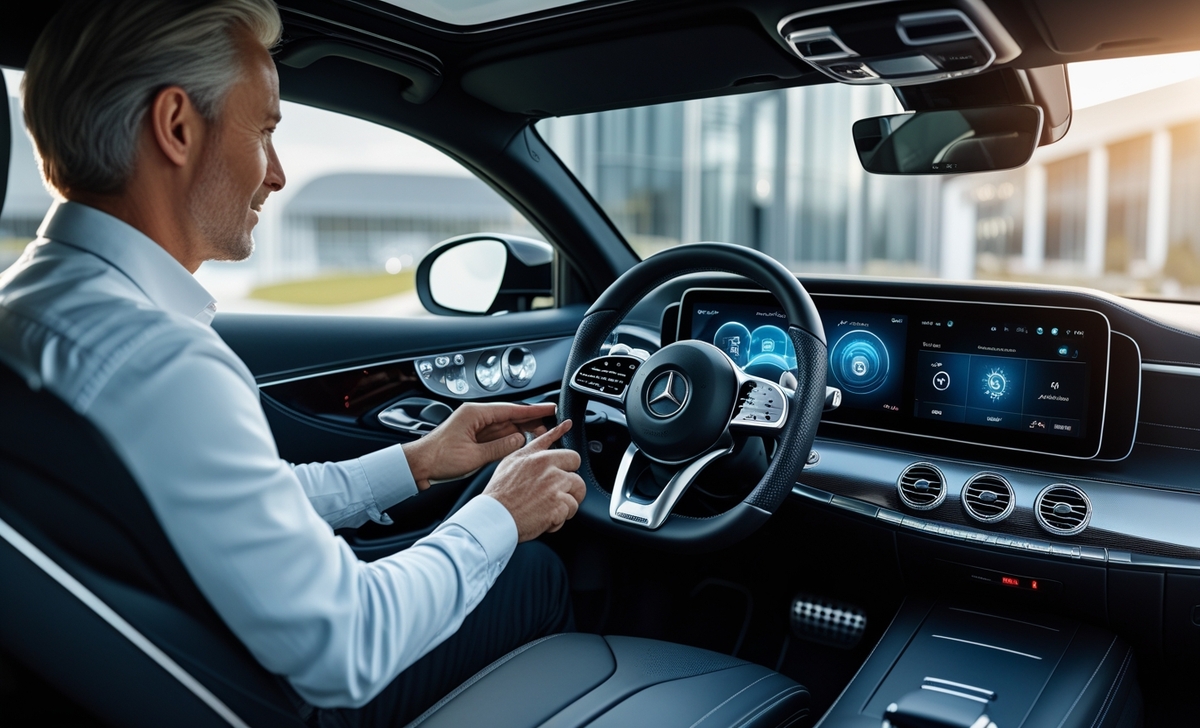
Mercedes-Benz enhances the customer journey through MBUX, an AI-driven system. The Chief Information Officer, Jan Brecht, spearheads artificial intelligence integration. This system personalizes user experiences, offering real-time insights and improved digital services.
Augmented Reality Navigation
Augmented reality (AR) improves navigation in Mercedes-Benz vehicles. Leadership focuses on integrating AR to enhance functionality and simplify customer experiences. These innovations redefine consumer preferences in digitalization.
Advancements In Electric And Hybrid Vehicles
Mercedes-Benz accelerates its commitment to sustainability. The company invests in electric and hybrid technology, guided by its leadership style. Digital twins optimize vehicle development, ensuring efficiency and innovation initiatives align with market expectations.
Enhancing Customer Experience (CX)
Customer service remains a priority in digital transformation. Mercedes-Benz Financial Services uses data-driven insights to boost customer loyalty. The brand manages consent preferences to enhance privacy while refining customer interactions.
Personalized Dealership Interactions
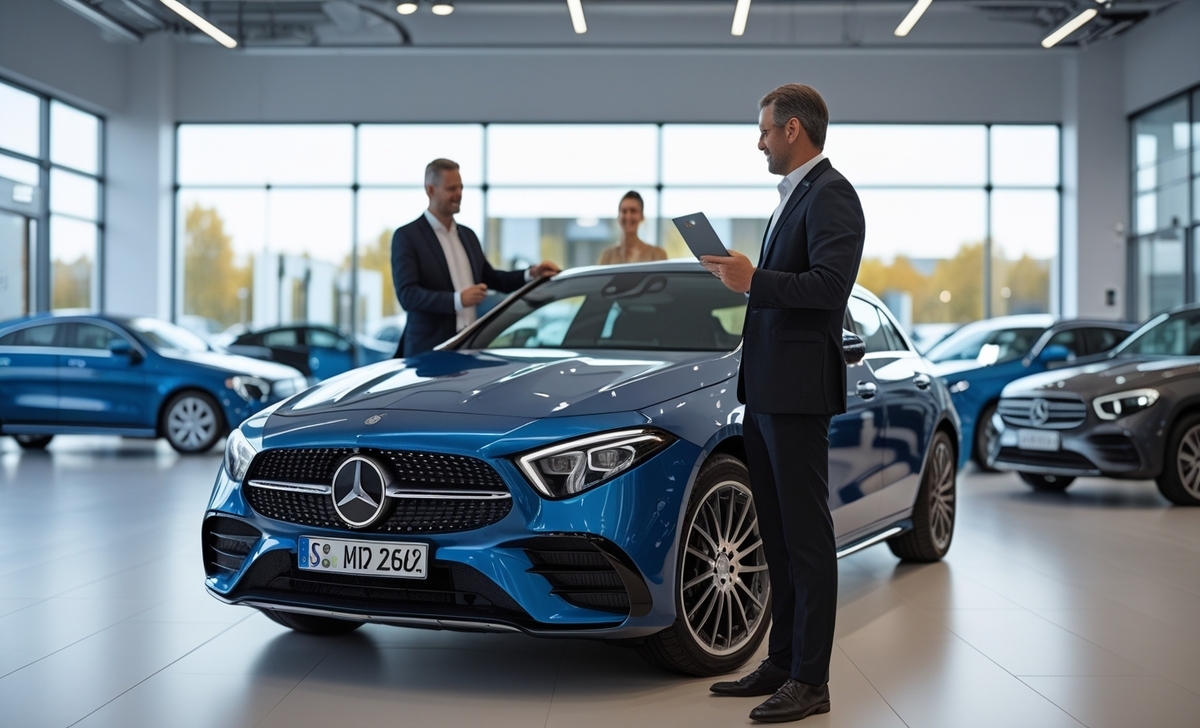
Mercedes-Benz Mobility integrates digitalization into dealership experiences. Leaders support employees in using AI and customer data to create seamless interactions. These strategies align with the company’s marketing strategy and consumer preferences.
Development Of Connected Car Services
The brand advances digital services by integrating connected car technology. Leadership invests in emerging mobility trends, ensuring enhanced functionality. These services cater to evolving customer needs while maintaining the prestige of the Mercedes-Benz brand.
Leadership’s Influence On Innovation
Mercedes-Benz fosters a culture of lifelong learning. Leaders, including General Manager Sabine Kohleisen, emphasize transformation through continuous education. The labour director supports employees by implementing innovation initiatives.
Investments in Autonomous Driving Technologies
The company pushes the boundaries of digitization. Leadership directs resources into AI-powered autonomous driving. These advancements position Mercedes-Benz at the forefront of technological progression.
The VISION EQXX Initiative
Mercedes-Benz redefines electric vehicle efficiency through VISION EQXX. The Vice President oversees this initiative, ensuring energy-efficient performance. Innovation and sustainability drive this project, reinforcing the company’s commitment to progress.
The MB.OS Framework And Its Significance
Mercedes-Benz developed MB.OS to streamline vehicle software. This operating system enhances digital twins and ensures seamless integration across platforms. The leadership team manages this transformation, prioritizing user-friendly experiences.
Embracing Open Source And Technological Advancements
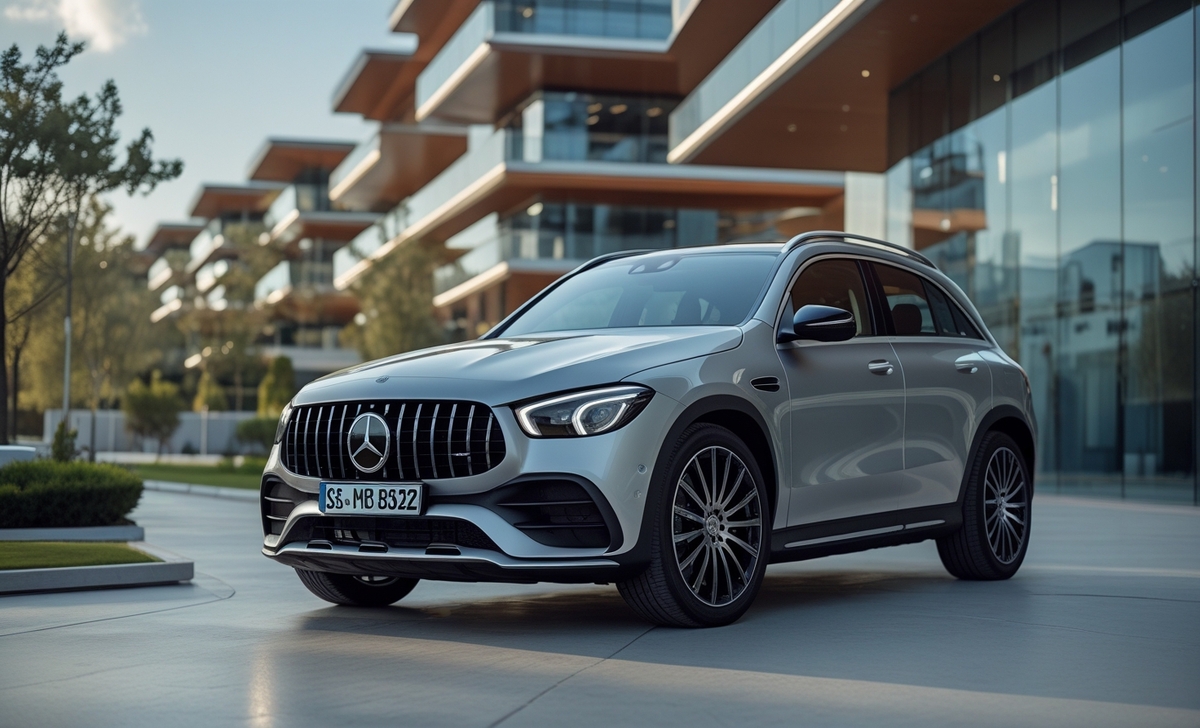
The leadership has also embraced open-source software to drive the company’s digital ecosystem. Mercedes-Benz enhances its technological capabilities and accelerates digital transformation by integrating Free and Open Source Software (FOSS) into vehicle development and other areas. This initiative underscores the leadership’s dedication to adopting innovative technologies to maintain a competitive edge.
Through these strategic initiatives and the visionary leadership of its executives, Mercedes-Benz continues to navigate its digital transformation, ensuring the brand’s legacy of luxury and innovation in the digital age.
Navigating Market Competitiveness Through Digital Transformation
Mercedes-Benz leverages digitization to remain competitive. The leadership team refines strategies by gaining insights from international journals and related links. These approaches keep the brand ahead in a rapidly evolving industry.
- Leadership Styles Affecting Corporate Culture
Different leadership styles influence Mercedes-Benz’s corporate culture. The company values human relations, empowering employees to drive digital transformation. This approach fosters innovation and strengthens the brand’s global presence.
Conclusion
Mercedes-Benz merges tradition with technological advancement. Leadership plays a vital role in shaping the company’s digital future. This transformation secures its position as a leader in luxury automotive innovation.
Mercedes-Benz prioritizes sustainable innovation. The leadership team integrates environmentally friendly solutions while managing consent preferences. These efforts reinforce the company’s commitment to a responsible and digitally advanced future.
FAQs:
1.How Has Leadership Influenced Mercedes-Benz’s Digital Transformation?
Leadership has played a pivotal role in steering Mercedes-Benz’s digital transformation by fostering a culture that embraces innovation and technological advancement. Leaders have prioritized integrating digital solutions to enhance both operational efficiency and customer experiences.
2.What Strategies Have Mercedes-Benz Leaders Implemented For Digitalization?
Mercedes-Benz leaders have implemented strategies such as adopting agile methodologies, investing in artificial intelligence, and promoting data-driven decision-making to drive digitalization across the organization.
3.How Does Mercedes-Benz Ensure Successful Leadership During Digital Shifts?
Mercedes-Benz ensures successful leadership during digital shifts by encouraging continuous learning, fostering collaboration across departments, and maintaining a clear vision for integrating new technologies.
4.What Role Do Leaders Play In Mercedes-Benz’s Digital Culture?
Leaders at Mercedes-Benz play a crucial role in cultivating a digital culture by promoting openness to change, supporting innovative ideas, and providing resources for digital initiatives.
5.How Have Mercedes-Benz Leaders Addressed Challenges In Digital Transformation?
Mercedes-Benz leaders have addressed challenges in digital transformation by implementing frameworks like Holacracy to enhance responsiveness and adaptability within the organization.
6.What Impact Has Leadership Had On Mercedes-Benz’s Digital Innovation?
Leadership has significantly impacted Mercedes-Benz’s digital innovation by setting strategic priorities that align with technological advancements and market demands, thereby driving the company’s competitive edge.
7.How Do Mercedes-Benz Leaders Integrate Digital Tools Into Operations?
Mercedes-Benz leaders integrate digital tools into operations by identifying areas where technology can enhance efficiency and ensuring employees are trained to utilize these tools effectively.
8.What Leadership Qualities Are Essential For Digital Transformation At Mercedes-Benz?
Essential leadership qualities for digital transformation at Mercedes-Benz include adaptability, visionary thinking, technological proficiency, and the ability to inspire and manage change within teams.
9.How Do Leaders At Mercedes-Benz Foster Digital Talent?
Leaders at Mercedes-Benz foster digital talent by creating an environment that encourages skill development, offers opportunities for continuous learning, and recognizes and rewards innovation.
10.What Is Mercedes-Benz’s Future Vision For Its Leadership In Digital Transformation?
The future vision of Mercedes-Benz’s leadership in digital transformation involves leveraging emerging technologies to create sustainable mobility solutions, enhancing customer experiences, and maintaining the brand’s legacy of luxury and innovation.